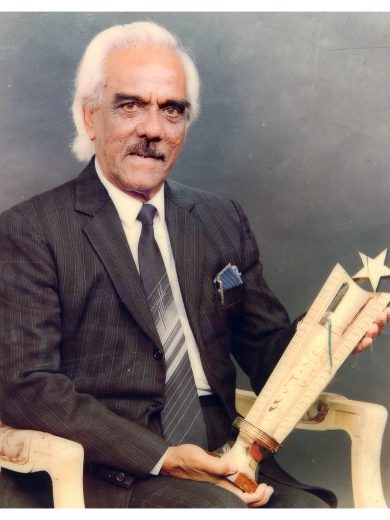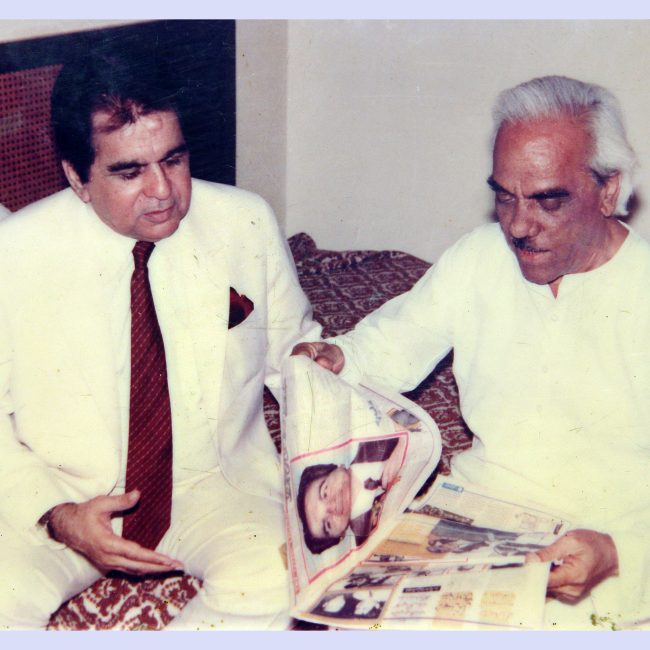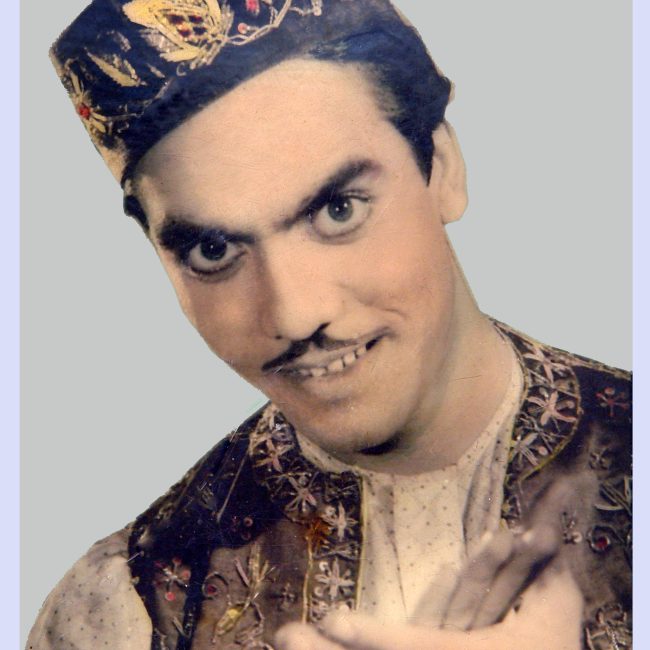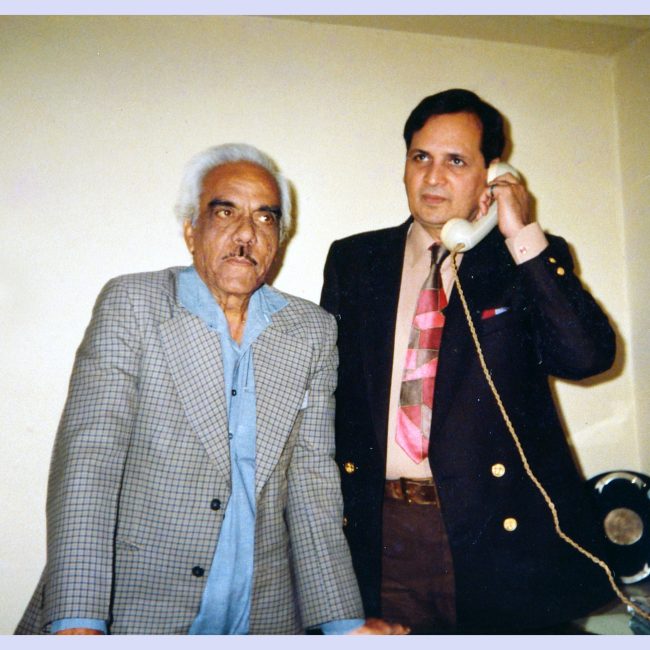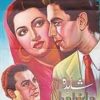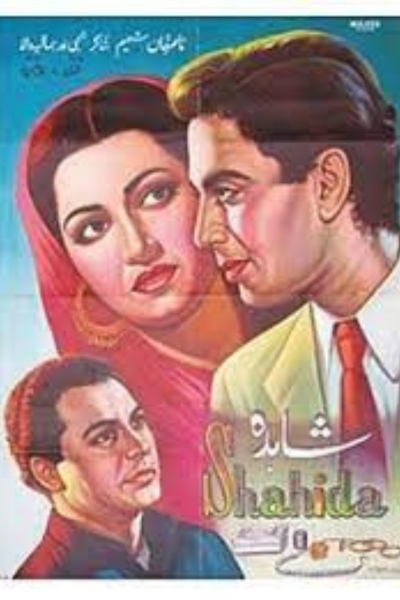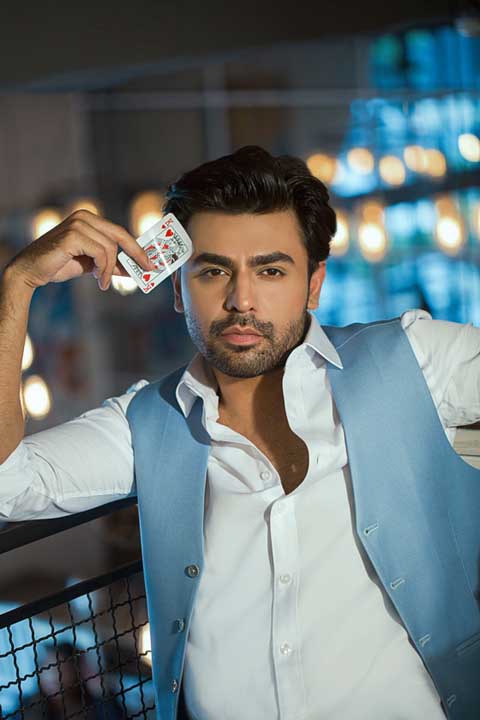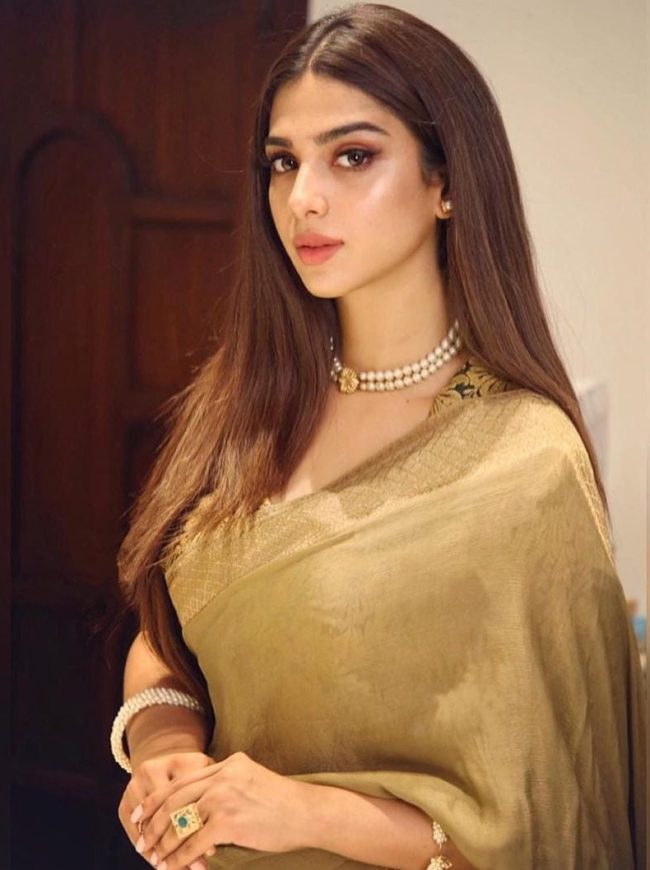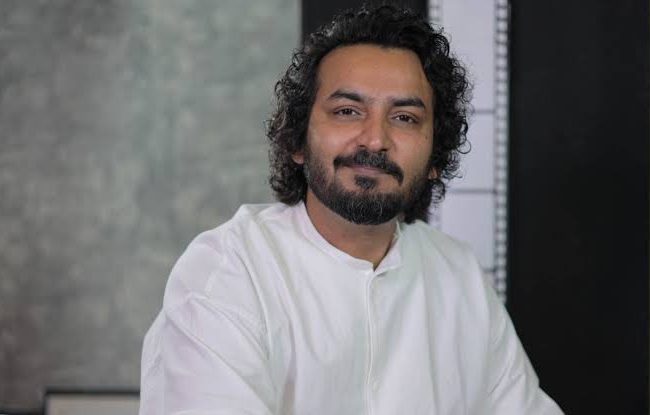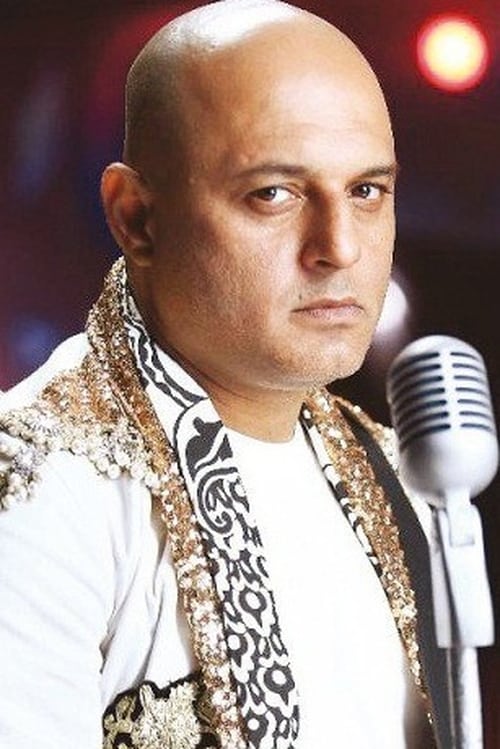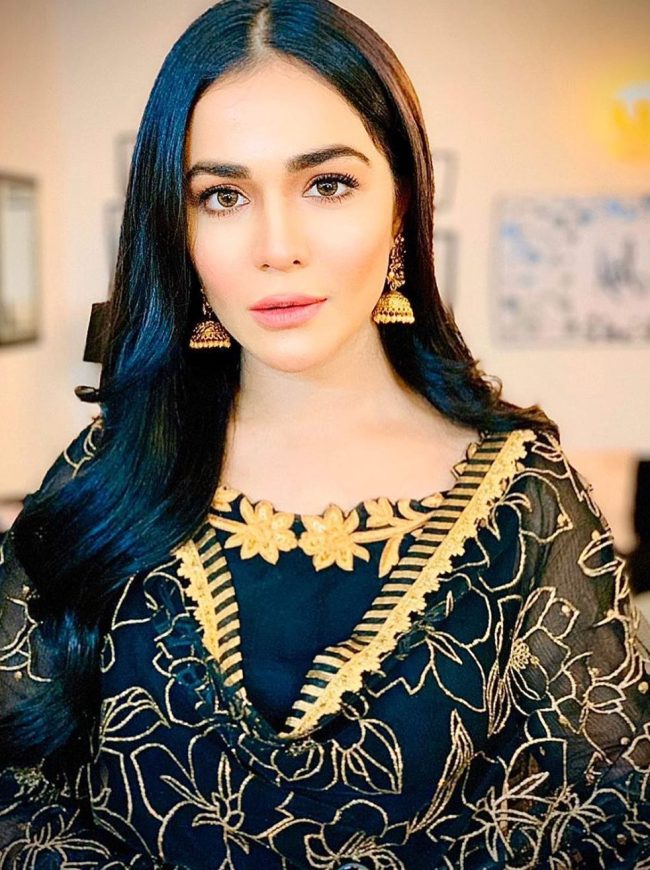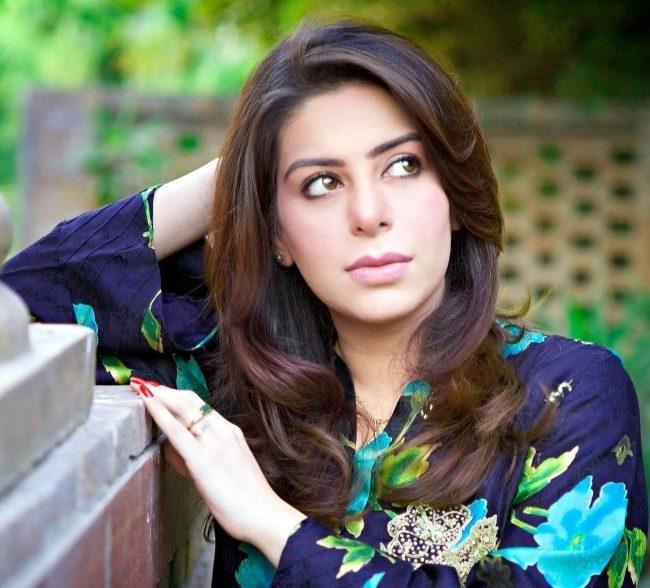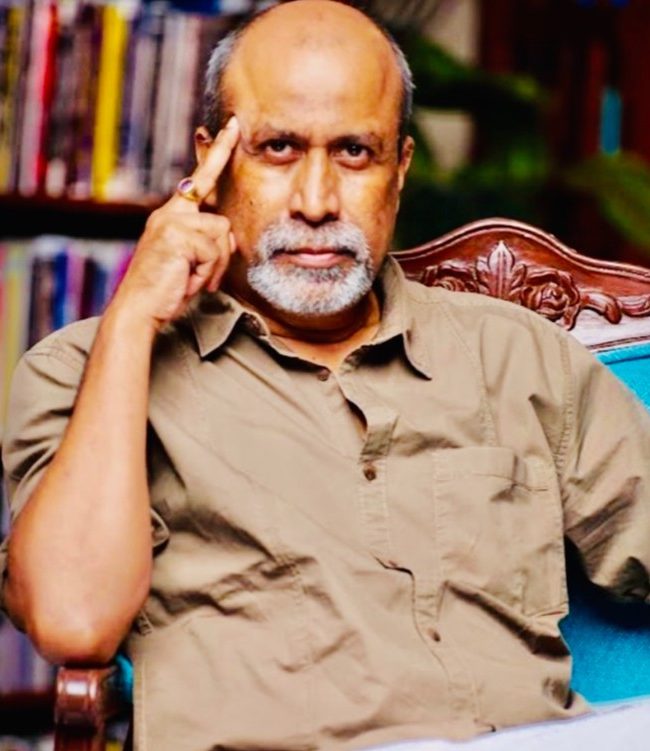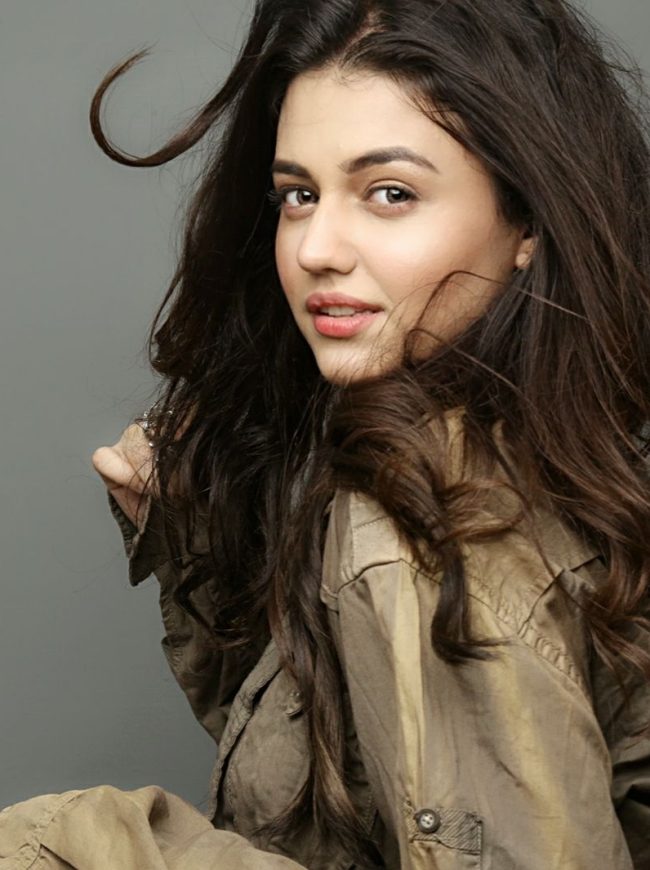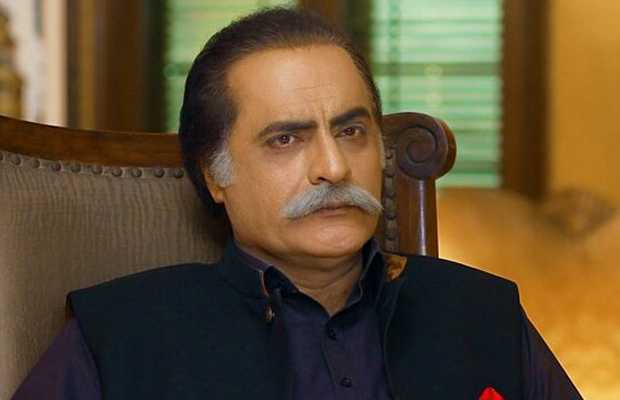Luqman
Details
Biography
Pakistan's famous director Luqman was born 23rd December, 1922 in Jalandhar during British India. He learned the mysteries of editing and directing from Syed Shaukat Hussain Rizvi and assisted him in the pre-Partition super-hit and musical film ‘Zeenat’ in 1945. As an independent director, he made his first film ‘Hamjoli’ in 1946 with Madam Noor Jehan as the heroine. He also assisted in the last film before Partition, ‘Jugnu’ in 1947. In this memorable film, on his recommendation, the great actor Dilip Kumar was taken as the hero opposite Madam Noor Jehan, whose first three films were failures, but this film proved to be a breakthrough for him.
After the creation of Pakistan, his first film was ‘Shahida’, the second Pakistani film released on 18th March, 1949. It is another matter that he lived in Egypt all his life and that his film was the first film of Pakistan. The dialogue ‘Allah, Meri Izzat Tere Hat Mein Hai’ was performed by Shamim Bano, the actress who played the title role of the film and became the first dialogue recorded for a Pakistani film. The story and dialogues of this film were written by Hakeem Ahmad Shuja assisted by his talented son Anwar Kamal Pasha who was also the assistant director. This was the only film in which all the songs were written by Hakeem Ahmed Shuja Pasha. This film was started as ‘Shafaq’ and its director was Fazal Shah but due to some untold facts, he took over and made this romantic film, which celebrated Silver Jubilees in Delhi and Lucknow, but had an average business in Pakistan.
His second film as a director was ‘Mehbooba’, which was released on 7th August, 1953 with Shami as the heroine opposite Santosh Kumar. She also acted as a child star in the film ‘Shahida’. Shami was the sister of actress Salma Mumtaz who later became Sudhir’s wife. This movie also earned an average business in Pakistan. Lyrics were written by Saifuddin Saif, Qatil Shafai & Tanvir Naqvi and sung by Munawwar Sultana, Pukhraj Pappu, Inayat Hussain Bhatti and Fazal Hussain on the compositions of Master Inayat Hussain. Actor Akmal appeared for the first time as an extra in this film.
His first great romantic, musical and successful film ‘Pattan’ was released on 24th May, 1955, which was also his first Punjabi film. This was the first film of actress Mussarat Nazir as a full-fledged heroine with Santosh Kumar as the hero. Baba GA Chishti gave the music and his several songs became super hits. A song ‘Chad Javein Na Channa Banh Parh Kay’ sung by Zubaida Khanum was the most popular song. Two charming duets ‘Beri Ditti Khel Oye, Mohabbtan Da Mail Oye and ‘Ṣada Sajra Pyar, Kaway Bar Bar’ sung by Zubaida Khanum and Inayat Hussain Bhatti were also a super-hit songs. One of the comedy songs from the film was ‘Jutti Kasuri, Peri Na Puri Hi Raba Way Sanon Turna Piya’ was in the voice of Alauddin who played the role of a joker-type villain in this film.
His fourth film was ‘Lakht-e-Jigger’ was an Urdu musical film which was released on 17th February, 1956. The film was produced by Agha GA Gul. The film was a remake of the Indian film ‘Vachon’ (1955) and was being made in competition with director Munshi Dil’s film ‘Hameeda’. Apart from the similar stories, the two films had only one thing in common that the hero of both the films was Santosh Kumar, whose heroine was Sabiha Khanum in the film ‘Hameeda’ and Madam Noor Jehan in the film ‘Lakht-e-Jigger’. Ijaz and Habib were introduced as new faces in these two films respectively. The music of the film was composed by Baba GA Chishti, his only Urdu film and his few songs became popular. Among them a song ‘Aa Haal Dekh Lay Mera, Keh Dil Mein Pyar Basa Kar Tera’ written by Hazin Qadri and the two songs written by Saifuddin Saif ‘Woh Khawab Suhana Toot Gaya’ and ‘Chanda Ki Nagri Say Aaja Ri Nindya’ became very popular. All these three songs were sung by Madam Noor Jehan.
He made his first film as a Producer was ‘Aadmi’ which was released on 14th November, 1958, in which he gave the title and double role to Habib. It was a very good social film. Yasmin excelled in emotional acting. The hit song of the film was ‘Zamana Pyar Ka Itna Hi Kam Hay, Yeh Na Jana Tha’ was sung by Naheed Niazi. The comedy part of Talish and Diljit Mirza in this film was of great perfection.
He also had the honor of making film ‘Ayaz’ which was released on 29th April, 1960 was the only Pakistani film on the Afghan invader and conqueror Sultan Mahmud Ghaznavi and his servant. The title role of this film was played by senior actor Shahnawaz who was a history making actor. He also played the main villain in the Indian subcontinent's first Diamond Jubilee film, ‘Qismat’ in 1943. Sultan Mahmud Ghaznavi appointed his favorite servant Ayaz as the Governor of Lahore in 1021 and this role was played by Habib in this film. Kamal was the second hero and the villain was Naeem Hashmi. Sabiha, Neelo and Nayyar Sultana were the heroines on whom this eternal naat ‘Jo Na Hota Tera Jamal Hi, Salu-Elai-Hi-Wa-Ale-Hi’ which was written by Tanveer Naqvi and sung by Zubaida Khanum and colleagues was a hit. A few other songs were also popular in Khwaja Khursheed Anwar’s music, including ‘Raqs Mein Hay Sara Jahan and Naach Naach Parwanay, Jab Tak Shama Jale were noteworthy.
As a Producer and Director, he also produced a semi-art film ‘Farishta’ was released on 17th March, 1961 which was based on a Russian novel ‘Crime & Punishment’. It was a surprise for the lovers of films of international standards that such a film was made in Pakistan. There was a story of a woman engaged in prostitution to support a poor family, who is rescued from the swamp by a young man. Yasmin, Ijaz, Talish and Alauddin were in the lead roles. Naheed Niazi and Salim Raza sang separate songs ‘Zamana Kis Qadr Na-Meherban Hay’ on the composition of Rasheed Attre. Lyrics were written by Tanvir Naqvi.
His second Punjabi film ‘Ek Pardesi Ek Matyar’ was released on 9th October, 1964. Asad Bokhari was the hero opposite Naghma. Alauddin was in the lead role.
His third and last Punjabi film was ‘Wohti’ which released on 6th October, 1967. Neelo was in the title role. It was a strange film with no consistent hero. Santosh Kumar, Muhammad Ali and Lehri were featured as guest stars opposite Neelo. It was his only film in which Masood Rana sang two songs. Both the songs written by Khawaja Parvez were accompanied by Irene Parveen whose lyrics were composed by Baba GA Chishti. One of these comedy songs was filmed on actresses Naheed and Diljit Mirza ‘Assan Dil Ditta, Tussi Sir Tay Peye Charhday O’. While the second comedy song was filmed on Nazar and Zeenat ‘Budheya Way Budheya, Wohti Ban Kay Jawani Yaad a Geyi’
He was an experienced director but most of his films were flops. However, Urdu film ‘Mahal’ which was released on 1st March, 1968 was the only Golden Jubilee Urdu film with Zeba and Muhammad Ali in lead roles. Many songs were popular in Rashid Attre compositions, including Madam Noor Jahan's song ‘Jiara Tarsay, Dekhnay Ko, Ik Rut Beeti, Ik Rut Aye’, Mehdi Hasan and Nighat Seema song "Awaz Jab Bhi Den Hum, Pehchan Jaiye Ga’ and the song of Rona Laila and Ahmad Rushdi ‘Suna Hay Keh Dil Lay Kay Detay Hayn Dhoka’ all became very popular. Lyrics of all the songs were written by Fayyaz Hashmi.
He made film ‘Pakezah’ which was released on 7th June, 1968. Luqman portrayed Ijaz as the hero opposite Zeba and Muhammad Ali as the villain. The achievement of this film was a masterpiece song ‘Lout Ayo Meray Pardesi, Bahar Aye Hay’ which was written by Ahmad Rahi in the composition of Salim Iqbal and sung by Madam Noor Jahan in her melodious voice.
He once again made a film as a producer and director called ‘Hamjoli’ which was released on 9th January, 1970 with the traditional pairing of Nayyar Sultana and Darpan. Mustafa Qureshi, Adib and Lehri were in important roles. It was a very weak film with a very slow tempo which leads to boredom. However, after her marriage, the moviegoers did not accept Nayyar Sultana as a heroine.
His film ‘Afsana’ was released on 6th February, 1970 was remembered for an evergreen song sung by Mujeeb Alam ‘Yun Kho Gaye Teray Pyar Mein Ham, Ab Hosh Mein Aana Mushkil Hay’ was written by Tanveer Naqvi, the lyrics of this song were composed by Nashad. Deba, Wahid Murad and Rosina were the main characters.
The highlight of his next film ‘Dunya Na Manay’ was released on 7th February, 1971 with ‘Yasmin Shaukat’ as its Producer. In this film, Pakistan's first Silver Jubilee heroine Swaran Lata acted for the last time. This song by Ahmad Rushdi in Nashad’s tune was amazing ‘Elahi Koi Hawa Ka Jhonka’. Zeba and Muhammad Ali were in the lead roles.
He, once again as a producer and director, made a film based on an English novel titled ‘Parchhaen’ which was released on 8th March 1974. Zeba had a double role in this film and the hero was Muhammad Ali. The highlight of the film was that composer Nashad composed the famous Dhamaal for the title of the film ‘Lal Meri Pat Rakhio Bala, Jhole Lalan’ was recorded in the prominent voice was Madam Noor Jehan while the names of the co-singers on the title were: Mala, Irene Parveen, Tasawwar Khanum, Ahmad Rushdi, Masood Rana, Shaukat Ali, Ghulam Ali and Pervez Mehdi.
His last film as a producer and director was ‘Wafa’ which was released on 13th November, 1981 in which Sikandar Luqman was the Assistant Producer while Faisal Luqman was also introduced as an actor and both of these two were his sons. The special thing about the film was that the story of this film was written by the great Indian actor Dilip Kumar, whose screenplay and dialogues were written by Naseer Nasir. Babra Sharif and Asif Raza Mir was a traditional pair.
He passed away on 23rd January, 1994 at Lahore. Later his burial took place at Muslim Town Graveyard in Lahore.
Filmography- Shahida 1949
- Mehbooba 1953
- Pattan 1955
- Lakht-e-Jiggar 1956
- Aadmi 1958
- Ayaz 1960
- Farishta 1961
- Ik Perdesi Ik Mutiyar 1964
- Wohti 1967
- Mahal 1968
- Pakeeza 1968
- Hamjoli 1970
- Afsana 1970
- Dunya Na Manay 1971
- Parchhaen 1974
- Wafa 1981

